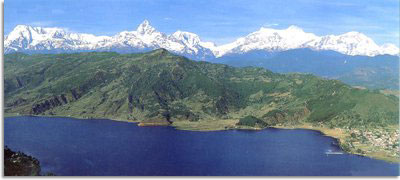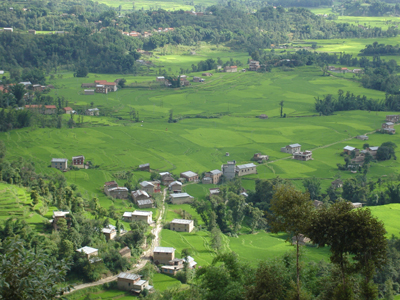


Historical, Cultural City and Jungle Tour


- Itinerary
- Cost Info
- Departure
Historical, Cultural City and Jungle Tour
Day 01 : Kathmandu - On arrival transfer to hotel. Sightseeing of Kathmandu and Swayambhu.
Arrive in Kathmandu. You will meet us at Airport and will be transferred to Hotel by private vehicle. And then Half day sightseeing.
Swayambhunath: One of world’s most glorious, ancient, enigmatic and the holiest of Buddhist Chaityas dating back more than 2000 years is situated on a hillock. Swayambhunath, literally “the Self-Created or Existent”, is a mosaic of small stupas and pagoda temple contributed by and time by the succession of kings and noblemen. The main structure of is made of a solid hemisphere of brick and clay supporting a lofty conical spire capped by pinnacle of copper gilt. Painted on the four sides on the base of the spire are the “All Seeing Eyes” of Lord Buddha. The main features of Swayambhunath in brief are “The Five Buddhas.”
Kathmandu Durbar Square: Drive to Kathmandu Durbar Square. This classic tour takes you to the famous places has housed kings of different dynasties and temple-scape representing finest specimens of Hindu and Buddhist architectures.
Back to Hotel for overnight stay.
Day 02 : Sightseeing of Patan and Bhaktapur. Sightseeing of Pashupati and Boudha.
This morning you'll have option whether to take Mountain flight (to see Mt. Everest and Himalaya range).
Patan: Also known as “Lalitpur” literally the city of fine arts is perhaps a living museum as she still retains her medieval air of the ancient times and almost half the inner city residents are craftsmen in their own right. Patan was one of the major Buddhist cities in Asia by the 7th century as pilgrims, scholars and monks from India, Tibet and China visited the city. It is said that at one stage the entire population of Patan City was comprised of monks and craftsmen only. The city is full of Hindu temples, Buddhist monuments and structures with bronze gateways, guardian deities and wonderful metal and woodcarvings. In ancient times the ancestors of present day craftsmen were invited to Tibet and as far as Peking to built monasteries, pagodas and images of Buddha and other revered.
Bhaktapur: also known as Bhadgaon, situated at an altitude of 1401 m, is a home to medieval art and architecture and was the site for Burtoluchhi’s Little Buddha. The urban city covers an area of 4 sq. miles. Shaped like a conch-shell, Bhaktapur meaning city of Devotees, pottery and weaving are its traditional industries. Bhaktapur, essence of the Newari City, 14 km east of Kathmandu is Nepal’s greatest treasures.
Pashupatinath: Just a small walk takes you to the temple of Lord Shiva-Pasupatinath with a two tiered golden roof and silver doors. This structure is famous for its superb Newari architecture, situated near the banks of the sacred Bagmati River. Entrance to the temple precinct is permitted to the “Hindus Only”, however visitors can clearly see the temple from the eastern bank of the Bagmati River. Pashupati, literally, “Lord of the Animals” is the patron deity of Nepal and believed to have been unearthed by an obscure herdsman while one of his cattle was showering the earth with milk. Across the sacred river, above the array of decorated monuments, is the “Slasmantak or Mrigasthali Ban (forest)” where legends has it that Lord Siva dwelled in a form of an antelope to evade the hordes of demigods.
Bouddhanth: This colossal and ancient Stupa, one of Nepal’s most unique monuments and said to be the world's biggest, attracts Nepalese pilgrimage of Tibetan stock from as far as Dolpo and Mugu as well as Tibet, Ladhak in India and Bhutan. Baudhanath Stupa, with all seeing eyes of primordial Adi Buddha on all the four sides of the stupa, is said to hold the remains of Kasyapa - the Buddha of the previous time.The Stupa is 100 meters in diameter and was built on an octagonal base. Inset into the base are prayer wheels established by the Lichchivi King Mana Deva in the fifth century. The stupa rises to 36 meters above the base including the spire, “all seeing eyes” and the pinnacle represents the stages of enlightenment, symbol of royalty, compassion, knowing and nirvana. There are many myths about the origins of the stupa. We'll have lunch here after the sightseeing (around 1330hrs).Drive back to Hotel...
Day 03 : Kathmandu / Chitwan Day rafting on the Trisuli river. Transfer to Safari Temple tiger Lodge,
Day 04 : Chitwan - Full day jungle program.
Early morning you will be mounted on elephant back and then taken for a jungle safari for 2 -3 hours penetrating through dense 18-20 ft grasslands. It is the favourite habitat of the rhinoceros and other mammals. After breakfast you will be taken to the elephant stables where talk about the habits of the elephants takes place. Here you may witness the rare scene of the elephants at bath. Take your bathing suit along. In the afternoon you may just relax around the camp or take a dugout canoe ride down the Narayani River to view the gharial and the marsh mugger crocodiles. Dinner will be served around the campfire at the Resort.
Day 05 : Chitwan/Pokhara - Transfer by vehicle to Pokhara. Sightseeing of Davis fall and lake Phewa.
Early morning you will be departed for Pokhara, the beautiful tourist hub of Nepal by vehicle.
Devi's Falls (Patale Chhango) : Pokhara is the only city in Nepal which is famous for water falls. As we drive by the river sides below the hills we can see several beautiful and dashing water falls flowing downhill and finally flowing to the rivers. The highway to Baglung consist of several water falls. The city itself has a beautiful waterfall within itself and it is known as Davis Fall (In Nepali: Patale chango):
This is a breath taking view of Davis Fall in Chorrepatan. Chorrepatan is famous for this water fall and there is also a cave just two minutes walk from this fall. The water flowing in this fall comes from Fewa lake and the fall is worth visiting during the rainy seasons as it possesses its maximum velocity.
Pokhara is famous for mountains. But this is not only the thing that has made Pokhara popular. Davis fall is also one of the main tourist attraction center here in Pokhara. Davis fall is open every day of the week for the visitors. The ticket cost is very cheap and it is worth visiting.
This snap also features Davis Fall during the Winter season. During winter there is a mass decrease in the water volume of the Fewa Lake hence the Dam is closed to maintain the water volume within the Fewa Lake. This causes the Davis Fall in maximum decrement in its water volume. The corresponding snap features the rock formation made by the high velocity of the water flowing within it.
This snap features the Davis fall during the rainy season. The excess water in Fewa lake needs to be drained hence the dam is open during summer and this makes Davis fall much more vigrous. Davis fall is worth visiting during the rainy and summer seasons. This high velocity of water has created different type of rock formation as shown in the above snap.
Day 06 : Day at leisure at Pokhara.
Pokhara Valley and around: -
Pokhara is the finest natural city of the world. It is Nepal's tourism capital and the second largest tourist destination too. Pokhara is famous for its natural beauty and close view of Himalays. The world highest peaks like Annapurna 1st. Dhaulagiri and Manaslu can be seen very close. These peaks can also be viewed from a luxury hotel room. About 30% of the total arrivals of tourist visit Pokhara. Pokhara is also said a lake city of Nepal. There are more than seven beautiful lakes all are linked by a trekking trail.
Devi's fall: - It is a beautiful waterfall formed from the outlet of Fewa Lake. Why it is named Davi's fall might be the matter of interest. Trekkers named Devin and David one day had their bath down to the Fewa dam but unknowingly the doors of the dam opened to reduce the water level. Both the trekskers did not notice the signal to run away and sadly they were washed way and one of them mysteriously disappeared down into the underground passage beneath the fall. Since then the fall was
named Davi's fall. It is worth visiting site of Pokhara.
Sarangkot: - Sarangkot is a small hill on the north west side of Pokhara. It is the best place for sunrise and Mountain View like Machhapuchre (Fishtail), Annapurna range, and Dhaulagiri range, Lamjung Himal, Manaslu and the Ganesh Himal. Tourists reach there early in the morning to view the rolling sunrise and the dazzling mighty snow peaks in the morning tender sun.
Fewa lake: - Fewa Lake is the finest lake of Nepal. It is 41/2km long and 200m to 1km width. Boating on the lake is an exciting and most interesting moment. In the middle there is an island where Barahi temple is located. Every day thousands of visitors visit the temple. Surrounded by the green forest and lakeside city, Fewa lake reflects the beautiful images of Machhachapuchre.
Begnas lake: - Begnas lake is located 13km east of Pokhara city. This lake is in a round shape and is surrounded by green hills. On the north beautiful Annapuran fourth Himal is overlooking the lake. While boating on the lake the images of the mountain is seen into the lake. There is regular buses and taxis service to Beganas lake and cycling also is also popular.
Seti George: - Seti River is originated from the beautiful mountain the Machhapuchre Himal.
The water is milky white and cool. The river before entering into the Pokhara city has been disappeared into a narrow natural tunnel and has appeared in some places. It is another natural wonder of Pokhara. Its width is hardly 2 meters and the depth is more than 20 meters but you can not see the bottom of the river. Mahendra Pul (bridge) is the right pace to view the dreadful rush of the river through a narrow gorge.
Gupteshor Mahadev cave: - South of the Pokhara valley there is a beautiful cave. The cave has different branches but the end has not yet been met. The main part of the cave is some 20m down. The bottom is wide and spacious. There is an image of Lord Shiv. One of the branch of the cave goes towards the Devi's fall and after a 20 meters easy walk one can reach near the fall. It is a very wonderful moment to stand just below the fall inside the cave. Gupteshor Mahadev cave is a religious site for the Hindus. Many Hindu devotees visit the cave in different occasions.
Mahendracave: - It is located on the north of Pokhara valley some 10km from the city center. This is the most popular cave of Nepal It is also unexplored. There has been made necessary arrangement for the visitor with service of the guides. Nearby the cave there is another cave named Chamere cave or the bat cave where hundreds of bats are live. Both caves are worth visiting.
World Peace Stupa: - It is one of finest piece of sight seeing destination in Pokhara. Located on a small hilltop, world peace stupa is the best place to view the Himalaya range just in front of your eye. Overlooking the Fewa Lake the stupa site is well managed. The access is easy and both options trekking for one hour and driving are available to reach the stupa.
Kahu Dada: - On the northeast side of Pokhara valley, Kahu Dada is another viewpoint center of Pokhara. There is a tower to view the mountain range and the valley. It is the best option for a day hike. It takes about 2 hours gentle walk to reach the hilltop through villages and bushes.
International Mountain Museum (IMO) : - Among of the entire sight seeing destinations in Pokhara IMO is the newly opened destination. Located on the south east of Pokhara city IMO is only one mountain museum in the world of its kind where mountaineering history including the climbing information and climbers' details are preserved and displayed. For the interested one an artificial wall of mount Manaslu has also been constructed. The meseum has preserved the climbing records and equipments of all the famous climber of the world.
Bindabasini Temple: - Located right in the city center, Bindabasini is the popular pilgrimage site of Hindus. On a small hill the temple is beautifully locates and maintained. It is the best site of Pokhara to experience the Nepalese religious belief.
Tibetan Refuge Camp: - In the fiftieth decade many Tibetan refuge had inflexed into Nepal. They are settled in different part of the country. In Pokhara there are four Tibetan refuge camps. All these camps today are like the Tibetan villages where they are maintaining Tibetan culture, tradition and lifestyle. To experience the Tibetan culture at least one center is worth visiting.
You can have some free time around the main Pokhara city to explore in your own way. Overnight Hotel.
Day 07 : Pokhara/Dhulikhel - After breakfast transfer by vehicle to Dhulikhel for overnight stay at DMR.
Day 08 : Dhulikhel/Kathmandu - Sunrise from Dhulikhel. Transfer to airport for return flight.
Situated at about 30 miles covered in 45 minute drive, to the east of Kathmandu, lies the small town of Dhulikhel. Nestled in the laps of Himalayas, the place offers a breathtaking view of the north-eastern part of the mountains. Dhulikhel is located at the foothills of the Panchkhal Valley, which is about 21 miles to the east of Kathmandu on a Chinese built Arniko highway, which leads to Tibet, crossing at Kodari.
Dhulikhel, at a height of 1550m, is host to some beautiful buildings. The local people living there are called Newars. Built in Victorian Style, the four to five-storyed brick mansions in the town are an architectural delight and accommodate close traditional Newar settlement. The much popular Newari woodcraft is showcased at the resorts such as the Dhulikhel Mountain Resort and Himalayan Horizon in traditional manner but with modern amenities. To enjoy a relaxing holiday, join us on Tour Packages for Dhulikhel.
The most sought after place by the tourists thronging the place of Dhulikhel is the Namo Buddha, an old Buddhist monastery. For centuries now this place has attracted pilgrims from all over the world. According to the legend, Lord Buddha is said to have sacrificed his own flesh to feed a starving tigress and her cubs here. A carved stone slab depicts this Buddhist tale of noble empathy and sacrifice. You can also witness this marvel at Tour Packages for Dhulikhel, India.
Dhulikhel offers some good day walks in the area. Many people come here to get warmed up before undertaking long trekking excursions. In the main square of Dhulikhel resides that famous Harisiddhi and Narayan Temple, both of Lord Vishnu. The most popular place to watch the sunrise over the mountains is at the Kali Temple on top of the hill in the southeast.
Included Services:
- Airport pickup / drop and all ground transfers by private air vehicle as per our itinerary.
- Five Star Hotel De L' Annapurna in Kathmandu. (Twin sharing, including breakfast, and all taxes).
- Welcome Dinner with Live Nepalese cultural program.
- Guided Sightseeing as in our itinerary (including all entrance fees).
- Hotel Fish Tail Lodge in Pokhara. (Twin sharing, including breakfast, and all taxes).
- Daily wages and insurance of our staffs & guides.
- Wildlife excursion program inside Chitwan National park.
- National park entrance fee, activities like elephant riding, bird watching, canyoning,
- Accommodation at Temple Tiger Resorts in Chitwan (including all meals).
Excluded Services:
- International Airfares / Airport Taxes.
- Meals (Lunch & Dinner) while staying in Hotel as per our Itinerary (only breakfast is included).
- Expenses of personal nature such as Bar Bill, Laundry Bill, Telephone Bill, Mineral Water, Tips and etc.
- Personal Medical & Travel Insurance.
- Rescue & Evacuation - If needed.